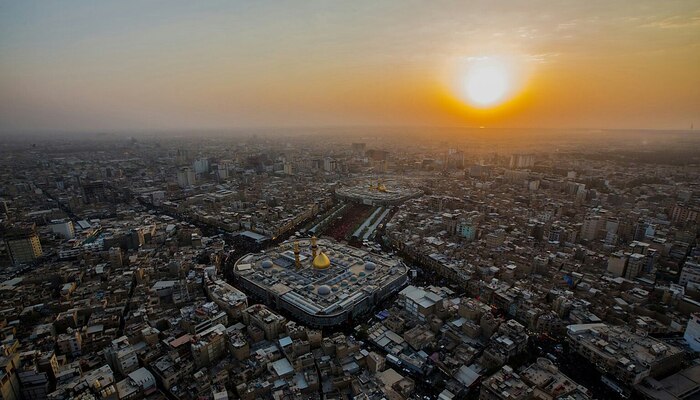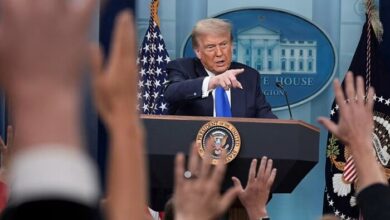
Who Martyred the Blessed Imam Hussain (RA)?
The tragedy of Karbala wasn’t just the result of one man’s cruelty—it was carried out by many hands under the command of corrupt leaders. The chief instigator was Yazid ibn Muawiyah, who inherited the caliphate and demanded allegiance from Imam Hussain (RA). When Imam Hussain refused, Yazid ordered his governor Ubaydullah ibn Ziyad to stop him—at any cost.
Ibn Ziyad rallied an army in Kufa. The very people who had once invited Imam Hussain (RA) to lead them now turned their backs out of fear and political convenience. Among the key figures responsible for the actual killing of Imam Hussain (RA) and his family were:
Shimr Dhi al-Jawshan, the most notorious, who beheaded Imam Hussain while he lay wounded.
Amr ibn Sa’d, commander of the army that surrounded and attacked Imam Hussain.
Harmala ibn Kahil, the archer who shot the infant Ali Asghar in his father’s arms.
Khuli ibn Yazid, who carried the Imam’s head to Ibn Ziyad for a reward.
Malik ibn Nusr, who struck the Imam’s blessed head with a sword.
Hakim ibn Tufail, who pierced the Imam’s forehead with a spear.
Amr ibn Hajjaj, who guarded the Euphrates River and prevented water from reaching the family of the Prophet (SAW).
Ibn Sulaym al-Kalbi, who cut off Imam Hussain’s finger to steal his ring.
Each played a role in a chain of events that is considered by many as one of the darkest moments in Islamic history.
The Rise of Mukhtar al-Thaqafi
Years after Karbala, justice still seemed like a distant dream. But Mukhtar ibn Abi Ubayd al-Thaqafi—an imprisoned man at the time of the massacre—was quietly waiting. After the death of Yazid, Mukhtar saw his chance.
He returned to Kufa, a city haunted by its betrayal. Mukhtar rallied the people, especially those loyal to Ahl al-Bayt, and declared himself the governor of Kufa under the claim that he represented Muhammad ibn al-Hanafiyya, son of Imam Ali (RA). He vowed revenge against the killers of Imam Hussain.
His first order was loud and clear: “Track down every man who raised his sword against the grandson of the Prophet. Bring them to justice.”
Names, Crimes, and Reckoning
Mukhtar appointed Ibrahim ibn al-Ashtar, a trusted and loyal warrior, to lead the investigations and military campaigns. A list of nearly 30 names emerged—each one tied to a horrific act at Karbala.
Here are just a few:
Shimr Dhi al-Jawshan – beheaded Imam Hussain.
Harmala ibn Kahil – killed the infant Ali Asghar.
Khuli ibn Yazid – displayed the Imam’s head for reward.
Amr ibn Hajjaj – blocked water from reaching the Ahl al-Bayt.
Ibn Sulaym al-Kalbi – mutilated the Imam’s body for loot.
Zayd ibn Raqqad, Amr ibn Sa’d, Qais ibn Ash’ath, and Sanan ibn Anas – all accused of unspeakable crimes against the family of the Prophet.
Mukhtar’s forces captured them one by one. Many were dragged from their homes, while others tried to flee. But justice was relentless. Some were found in hiding, others were betrayed by their own tribesmen who feared Mukhtar’s wrath.
Retribution in the Streets of Kufa
Once captured, Mukhtar didn’t keep the trials behind closed doors. He believed justice must be seen. The people of Kufa—who had lived with guilt and silence—watched as the killers of Karbala faced their fate.
The executions were swift and symbolic:
They were tied with ropes like animals.
Their hands and feet were cut off.
Their heads were severed in public.
In some cases, their corpses were burned to ash—an echo of the rage felt by those who loved the Ahl al-Bayt.
Mukhtar stood before the crowd and announced:
“These men denied the Prince of Paradise water. They looted his family. They murdered the beloved of the Prophetﷺ. Their punishment is only the beginning. The real justice awaits them in the Hereafter.”
This wasn’t just political vengeance—it was personal, spiritual, and deeply emotional. Mukhtar wasn’t seeking power. He was seeking closure.
5. The Legacy of Justice and Controversy
Mukhtar al-Thaqafi remains a deeply debated figure. He was a rebel who used the tragedy for political power. But regardless of the perspective. However, he changed the course of history.
By bringing the killers of Imam Hussain to justice, Mukhtar sent a message that the blood of the Prophet’s family could not be shed without consequence.
The killers of Imam Hussain (Radi Allahu Ta’ala Anhu) faced worldly justice through the hands of Mukhtar al-Thaqafi. Their crimes were too great to ignore, and their fate became a lesson in accountability. Mukhtar’s campaign was more than revenge—it was a stand for truth.
Follow us on Instagram, YouTube, Facebook, X and TikTok for latest updates




